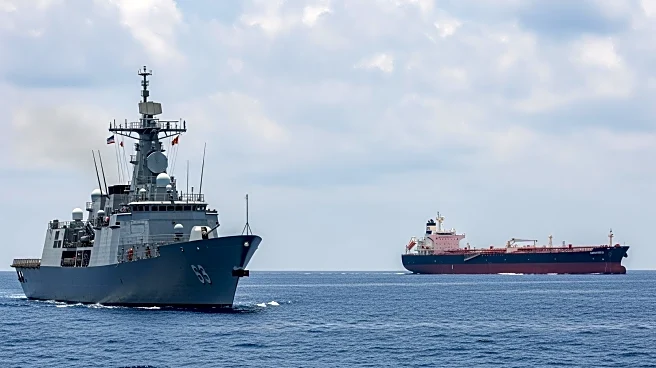What's Happening?
The European Union's naval mission, Operation Atalanta, successfully reached the Malta-flagged tanker Hellas Aphrodite after it was boarded by pirates off the coast of Somalia. The operation involved the ESPS
Victoria frigate, a helicopter, a drone, and another aircraft, which collectively prompted the pirates to flee the vessel. All 24 crew members aboard the tanker were reported safe, with no injuries. The incident highlights ongoing piracy threats in the region, despite a decline in attacks since 2011 due to international naval patrols and strengthened Somali governance. The EU force continues to monitor the area, as the mother ship and pirates remain nearby, with efforts underway to intercept the dhow used in the attack.
Why It's Important?
The successful intervention by the EU naval force underscores the critical role of international cooperation in maintaining maritime security. Piracy off the Somali coast poses significant risks to global shipping routes, affecting trade and economic stability. The operation not only ensures the safety of the crew but also deters future piracy attempts, safeguarding commercial interests. The ongoing threat assessment and coordinated operations are vital for protecting vessels in the region, which is crucial for maintaining the flow of goods and services across international waters.
What's Next?
Operation Atalanta will continue its vigilance in the region, with ongoing efforts to intercept the pirate dhow and prevent further attacks. The EU naval force's presence is expected to deter piracy activities, but continuous monitoring and collaboration with local authorities are essential to address the root causes of piracy. The international community may need to enhance support for Somalia's governance and economic development to reduce piracy incentives.









